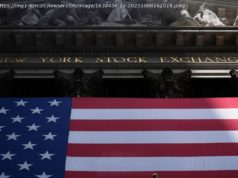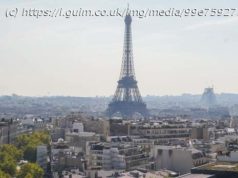As carriers face higher fuel and labor costs, some are increasing their fee to $30 from $25.
Get ready to pay even more the next time you fly with checked baggage.
Just before Labor Day, JetBlue and United Airlines raised the bag fee for most travelers to $30. Delta Air Lines followed suit on Wednesday. So far, though, American and Alaska Airlines have held out, keeping their fee at $25 for the first checked bag.
Airlines continue to see the much-maligned fees as a way to protect their bottom lines from rising fuel and labor costs.
“What the airlines are facing right now is that their costs are rising at about twice the rate of revenue,” said Samuel Engel, the senior vice president of aviation at the consulting group ICF. As a result, he said, airlines are looking for ways to increase revenues that entice their competitors to follow their lead.
“The baggage fee is an easy target, and the nice thing about the baggage fee is it’s a way to isolate that increase onto your least loyal customer,” Mr. Engel said. “Airlines have carved out exceptions to baggage fees for their elite frequent fliers, so the pool of people who represent the airlines’ most valuable revenue will not see this increase.”
Mr. Engel also noted that bag fees were a good way to get passengers to pay more without raising fares. Lower fares get more attention on flight search engines like Kayak and Expedia, and bag fees are not a factor in the price that is displayed.
In a statement, United insisted that the higher fees, which affect flights only within the Caribbean and North and Central America, were a way to maintain its current level of service.
“These changes allow us to continue investing in the overall customer experience in today’s marketplace,” the airline said.
JetBlue similarly defended its new pricing. In a statement, the airline said, “As a matter of good business, we routinely review and adjust our ancillary pricing to ensure a healthy business so we can continue offering the best customer experience of any U. S. airline.” Delta also said it regularly adjusted its fees.
Airlines remain profitable, but rising fuel prices and labor costs are tightening their margins.
“The increase in fuel prices from the first half of last year to the first half of this year was 31 percent, which represented approximately a 7.5 percent increase in total operating costs,” Mr. Engel said. “That’s really big.”
Raising bag fees, he said, is not the only way that airlines have been dealing with higher costs. United also announced last month that it would introduce a fee for economy seats closer to the front of the plane.
Southwest stands out by still allowing passengers to check two bags free.
Although higher fees are sure to frustrate many travelers, Mr. Engel said he did see a silver lining for carriers and their customers. While he expects airlines to see tight margins for a while, he said, the major operators are in much better financial shape than they were 10 years ago. American and United both introduced bag fees in 2008. They charged $15 for the first checked bag.
“We’re not going back to the dark days of the mid-2000s anytime soon,” he said.






